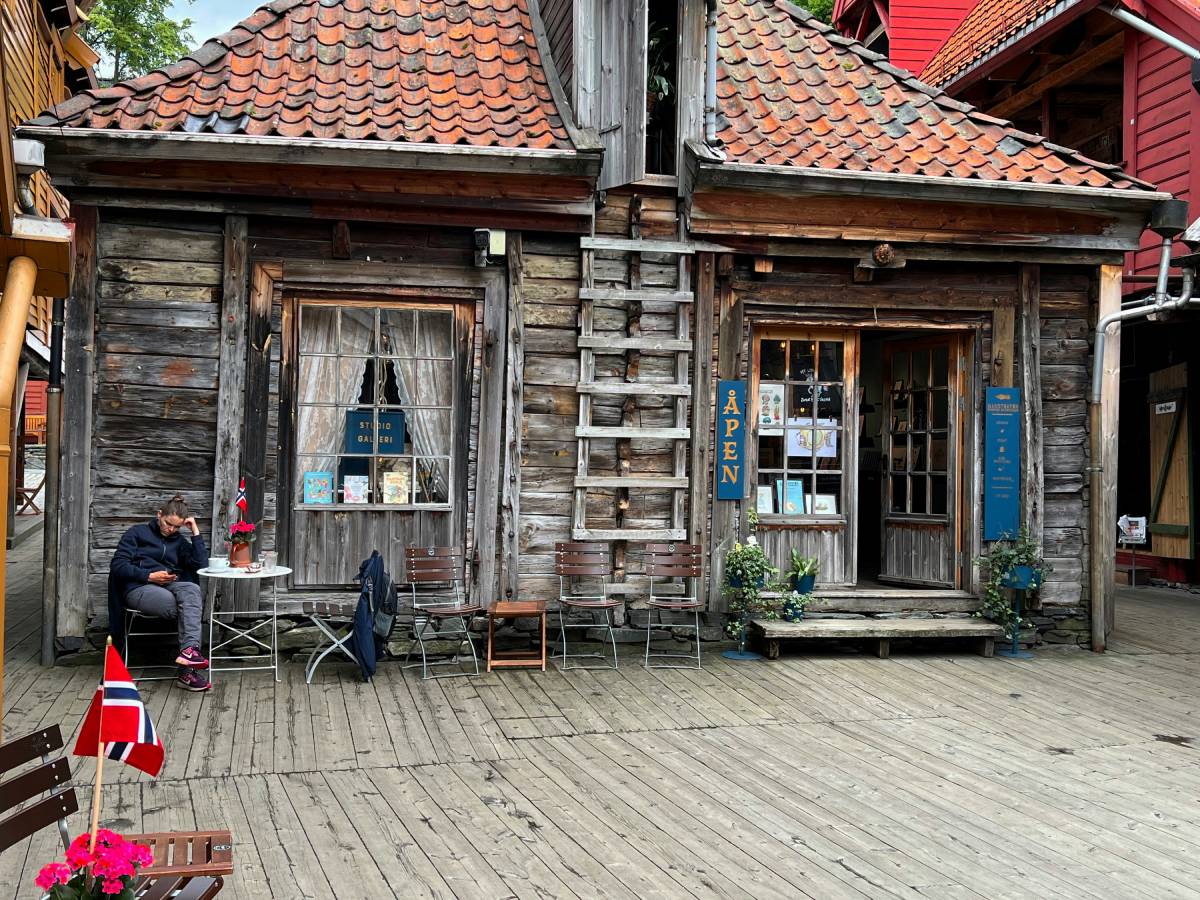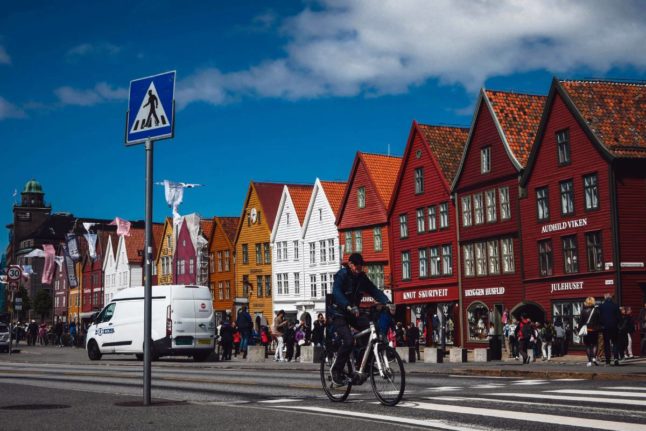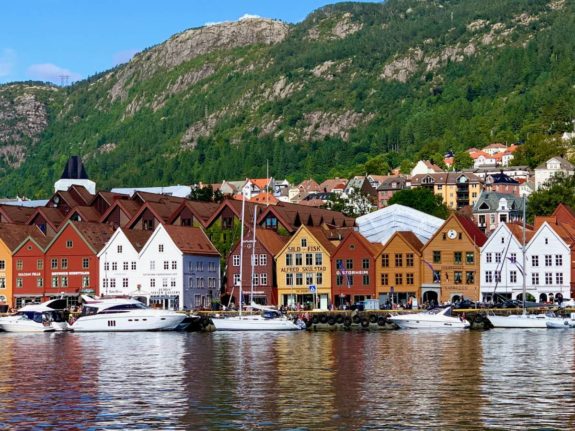Navigating the Norwegian job market as an international job seeker can pose significant challenges.
Despite Norway’s robust economy and high employment rates, the language barrier is often an obstacle, limiting opportunities for non-Norwegian speakers.
READ MORE: Which skilled jobs in Norway don’t require fluent Norwegian?
This becomes even more pronounced outside the country’s major urban centres, such as the capital, Oslo. In numerous smaller towns and rural areas, the demand for Norwegian language skills is further heightened due to close-knit communities and a lack of international business presence.
Consequently, job postings tailored to non-Norwegian speakers are limited, making it more difficult for many workers dreaming of a life in Norway to find suitable employment.
On top of that, the public sector in the country predominantly favours Norwegian speakers for their positions.
However, there’s no need to be pessimistic. While fluency in Norwegian may be necessary for specific industries and regions of the country, Bergen stands out for its international community and diverse job market, offering numerous prospects for non-Norwegian speakers.
Industries that (often) don’t require Norwegian
In Bergen, a range of industries offer job prospects for international job seekers, even those without a mastery of the Norwegian language.
Among these sectors are academia and research, where the international nature of the field often fosters an environment conducive to English-speaking professionals. The Norwegian Institute of Marine Research (Havforskningsinstituttet), which has its main offices in Bergen, is an excellent example of an institution that employs and works with international scientists and engineers.
Similarly, the IT and consulting sectors in Bergen often tend to prioritise technical expertise over linguistic proficiency, creating opportunities for skilled professionals from diverse backgrounds.
The accommodation, restaurant, and bar scenes thrive on Bergen’s bustling tourism scene (think fjords), which attracts visitors from around the world. English proficiency is highly valued in these sectors, as it enables effective communication with tourists and ensures a seamless guest experience.
Additionally, the construction sector in Bergen, driven by ongoing infrastructure projects and urban development, often requires specialised skills and qualifications rather than language fluency, opening doors for international professionals with relevant expertise.
In all these fields, the ability to communicate effectively in English, coupled with specific skills or experience, can serve as a gateway for international job seekers looking to establish themselves in Bergen’s job market.
Once you’re in, many companies will finance your Norwegian language course (often the case in the IT industry) or at least finance a few of its initial levels (up to B1 or B2).
READ MORE: Bergensk: A beginner’s guide to the Bergen dialect
Where to find jobs in Bergen
When looking for job opportunities in Bergen that do not require Norwegian language skills, start by directing your efforts towards a select few platforms and networks.
Finn.no, Norway’s largest online marketplace, offers a number of job listings across various industries. By utilising the platform’s search filters and specifying your requirements, you can efficiently sift through job postings tailored to your qualifications and preferences and even set up regular job alerts.
READ MORE: The best websites to look for jobs in Norway
Similarly, LinkedIn is also a great job-hunting resource for international job seekers in Bergen. With its expansive user base and rich job search functionalities, LinkedIn provides a user-friendly platform for applying for jobs and connecting with potential employers. It also offers a wide range of job listings in western Norway, and many (if not most) English-speaking jobs will pop up on LinkedIn.
In addition to online platforms, tapping into personal and professional networks within Norway – if you have any – can be very important in identifying job opportunities. So, try to tap into relationships with local contacts, whether through previous work experiences, academic affiliations, or social connections, as they can facilitate introductions to potential employers in the region.
While recruitment agencies, networking events, seminars, and workshops tailored to specific industries can also be helpful in the job search process, focusing initially on Finn.no, LinkedIn, and personal networks often offers a faster, more direct, and more proactive approach to identifying relevant job openings.
If you’re looking for a job in Norway and have yet to perfect your Norwegian, make sure to check out The Local’s our tips on how to find an English speaking job in Norway.

Not all industries are created equal…
To keep things real, it’s crucial to recognise that not all industries are created equal when it comes to job demand.
At the time of writing, industries such as IT and seafood stand out as prime examples of sectors with high demand for skilled professionals.
READ MORE: What are Norway’s highest-paying jobs and occupations?
In Bergen, both the IT and seafood industries are labour-intensive and heavily reliant on expertise, leading Norway to import a significant number of specialists to meet industry demands.
Consequently, job opportunities in these sectors often attract attention from headhunters and recruiters who actively seek out talent through platforms like LinkedIn.
In contrast, many other sectors in Bergen require a more proactive approach to job searching on your end. In these industries, you’ll need to take the initiative to reach out to potential employers and actively market your skills and qualifications.
Furthermore, the disparity in job demand across industries can also impact job offers. In sectors like IT and consulting, employers may offer competitive salaries, benefits, and incentives to attract top talent.
On the other hand, in industries with lower demand for jobs, job seekers may encounter greater competition for limited positions. So, you may need to be more flexible in terms of job expectations and compensation.
Why it’s worth learning Norwegian even if you don’t need it professionally
Even after landing a job that doesn’t explicitly require Norwegian proficiency, investing in a Norwegian language course is a strategic move with long-term benefits.
While your immediate job requirements may not require Norwegian language skills, don’t get complacent – learning the language can significantly improve career advancement opportunities.
READ ALSO: Why you should learn Norwegian even if you don’t need it for work
In addition to improving communication with colleagues and clients, fluency in Norwegian will demonstrate a certain level of commitment to integration within Norwegian society.
Proficiency in Norwegian will also open doors to networking opportunities, professional development initiatives, and potential career transitions within the Norwegian job market.
So, ultimately, you should look at Norwegian language courses as an investment in both your professional growth and personal integration.
While it will take time to become proficient in the language, the effort will set you up for success and fulfilment in your career and personal life in Norway.
If you’re relocating to the city, make sure to read our explainer on the things foreigners should expect if they live in Bergen



 Please whitelist us to continue reading.
Please whitelist us to continue reading.
Member comments